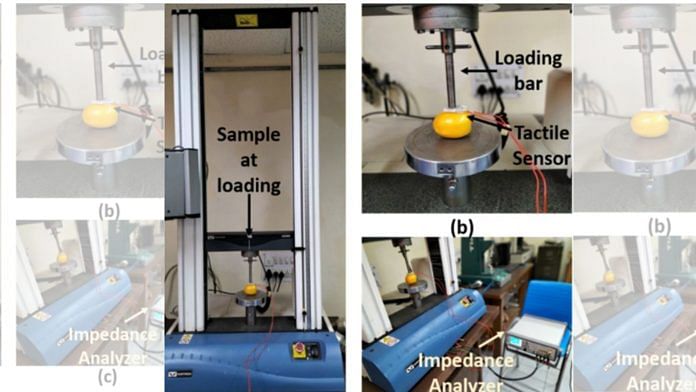New Delhi: A scientist at Indian Institute of Technology (IIT), Jodhpur, has made sure you will never have to eat a bad fruit ever again. Using nanoneedle-textured silicon, Dr Ajay Agarwal, along with researchers from IIT Delhi, and CSIR-CEERI, Pilani, recently demonstrated a cost-effective and highly sensitive tactile pressure sensor to detect a fruit’s ripeness.
The sensor examines the fruit’s ripeness by detecting elastic modulus or stiffness of the fruit and its capacitance — or the fruit’s ability to hold charge, helping measure its sugar levels.
Dr Agarwal, who led the study, said, “This innovative technology offers a cost-effective solution for accurate and reliable fruit ripeness detection during harvesting and transportation, enabling high-throughput sorting of fruits based on their quality and ripeness.”
With its lithography-free design eliminating the expensive set-up usually needed, the sensor is flexible and easy to mass produce.
In horticulture, monitoring fruit ripeness is a crucial aspect to maintain its freshness and quality. Various kinds of sensors such as chemical analysis of sugar and starch content, electrochemical sensing, image processing, electronics noise, and tactile sensing methods have been prevalent to examine ripeness. However, such methods of examination are usually destructive, expensive and not applicable to all stages of maturity.
Other methods like image processing for detecting ripeness are restricted to certain fruits, and changes in colour, making them unreliable indicators for some such as kiwis, mangoes, and blueberries. However, measuring firmness is a dependable method for assessing ripeness.
“The development of the highly sensitive tactile pressure sensor and its integration with a robotic system has the potential to revolutionise the way in which high-value fruits are sorted today,” said Agarwal, while discussing the impact of the research.
Also read: Air pollution significantly adds to heart risk in older Indians, finds IIT study



